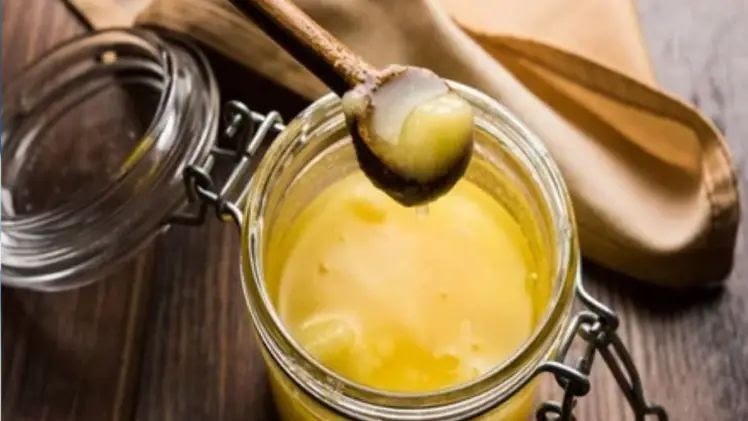Ghee is consumed with great fervor in Indian homes. Ghee is very beneficial for health as well as health. Eating ghee provides plenty of nutrition to the body. It has also been a part of Ayurvedic medicine for centuries.
Healthy fat ghee is very beneficial for promoting digestion, improving nutrients absorption and promoting healthy intestine. Ghee is also rich in vitamins A, D, E and, which are essential for strong immunity, healthy skin and bones. Ghee matches well with bread, lentils and many other foods and helps improve the nutritional values of dishes, but there are some foods with which ghee should not be consumed, as they can be harmful when eating together. This can cause harm to health instead of benefits. Ayurvedic doctor Shrey Sharma said that what things should not be consumed with ghee and what happens with it.
According to Ayurvedic doctor Shrey Sharma, consumption of ghee is always beneficial for health. Eating ghee not only benefits the body, but also protects against many diseases. Healthy fats present in it help to stay fit and active. Ghee contains many types of vitamins and minerals, which are necessary to stay healthy, but the combination of some things promote its nutrition and there are some combinations that may increase rather than reduced problems.
Honey and ghee
According to Ayurveda, mixing equal amounts of honey and ghee can cause a poisonous mixture, which can cause digestive and metabolism related problems. It is said that mixing them together can deteriorate the vegetation of the intestine and over time the body can be produced in toxins. Although both honey and ghee are healthy in itself, their mixture is harmful to health under certain circumstances.
Fish and ghee
According to Ayurveda, fish and ghee should not be eaten together. The fish effect is warm, while the ghee is cold. Eating both of these together can cause problems in digestion and can accumulate toxin in the body. Along with this, eating ghee and fish can cause skin problems, such as allergies and rashes etc. In such a situation, the consumption of ghee and fish should be avoided.
Radish and ghee
Radish is a rooted vegetable, which is sharp and warm and when it is eaten with ghee, which is oily and cool, this combination can cause disturbance and can cause digestive problems such as flatulence, acidity, or indigestion.
Curd and ghee
Both curd and ghee are heavy and oily and eating them together can slow down the functioning of the digestive system. According to experts, eating yogurt and ghee together can slow digestion, toxins ie toxins and even skin problems can occur.
At the same time, a new study published in The Lancet Public Health Journal shows that walking only 7,000 steps daily can be enough to get health benefits.
